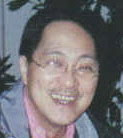GOTCHA, Published in The Philippine Star, Friday, February 1, 2008
Gathering info on the broadband scam is like pulling teeth. Senators are finding this out as key witnesses snub summonses to hearings. Evasion is the name of the game. Defying an arrest order, Sec. Romy Neri insists he has testified enough for 11 hours. Comelec chief Ben Abalos groused after attending once that he would never return for another roasting. Same with Transport and Communication boss Larry Mendoza, and deputies Lorenzo Formoso and Elmer Soñeja. Though recuperating from surgery, First Gentleman Mike Arroyo flew to
So now even a minor official thinks it proper to ignore a subpoena he himself asked for. Jun Lozada, a state-firm CEO touted to know everything including who got how much kickback, promised two senators he would bare all if questioned. And then he promptly flew to
“It’s okay for them to take us senators for a ride, that is our lookout if we let them,” Jamby Madrigal muses. “But they have a responsibility to our people. They should at least show good faith by being open.”
“They”, of course, are public officials, or the spouse of one, or a firm that bagged a colossal $330-million deal that Filipinos would repay. Hence the constitutional rule of transparency binds them, if not the moral duty to tell the truth. Their refusal reveals a pattern. It raises a nagging question too: if the DOTC-ZTE deal is above board as they claim it to be, then how come they’re shunning inquiries?
Neri at first swore that Abalos offered him P200 million to back the DOTC-ZTE deal as economic secretary. That revelation showed fraud that must be averted — and yet he ended his testimony there. Pressed to narrate what transpired later, he merely said he reported the bribery to President Gloria Arroyo, who only allegedly said not to accept it. He then invoked executive privilege to skip retelling under oath what he already spread to the press: that Arroyo had made him endorse the deal in spite of the dirt. (But since Arroyo still stood as witness at the DOTC-ZTE contract signing, did not Neri in effect incriminate her for approving a deal that contained at least P200-million sleaze?)
Abalos could only deny Neri’s detailed accounts of lobbying for ZTE. Citing golf etiquette, he said it was all right to accept travel freebies from the Chinese telecom execs. And upon resigning the next day he said he no longer could be forced as a private citizen to testify.
Mendoza et al failed in earlier hearings to justify an exclusive government broadband network. That simply meant they must try and try again until they convince the lawmakers who will approve the funding of $330 million. Yet they snubbed Wednesday’s resumption.
Extracting info was impossible from the start. What rankled Joey in Mar. 2007 was
Lozada is unique. He had promised Lacson he would not lie under oath, so senators had better subpoena him. He even said he would resign as CEO of a state firm, so he would not be bound by an Arroyo edict barring executive officials from testifying in Congress without her consent. He had big stories to tell, like how lobbyists divvied up a $70-million advance from the Chinese and that soldiers’ housing would be ditched to give way to the $300-million repayment. His conscience can’t take it, he said.
But when his name came up in newspapers, Lozada caved in from death threats and blandishments. Handed by superiors antedated travel orders and official clearances, he flew to


